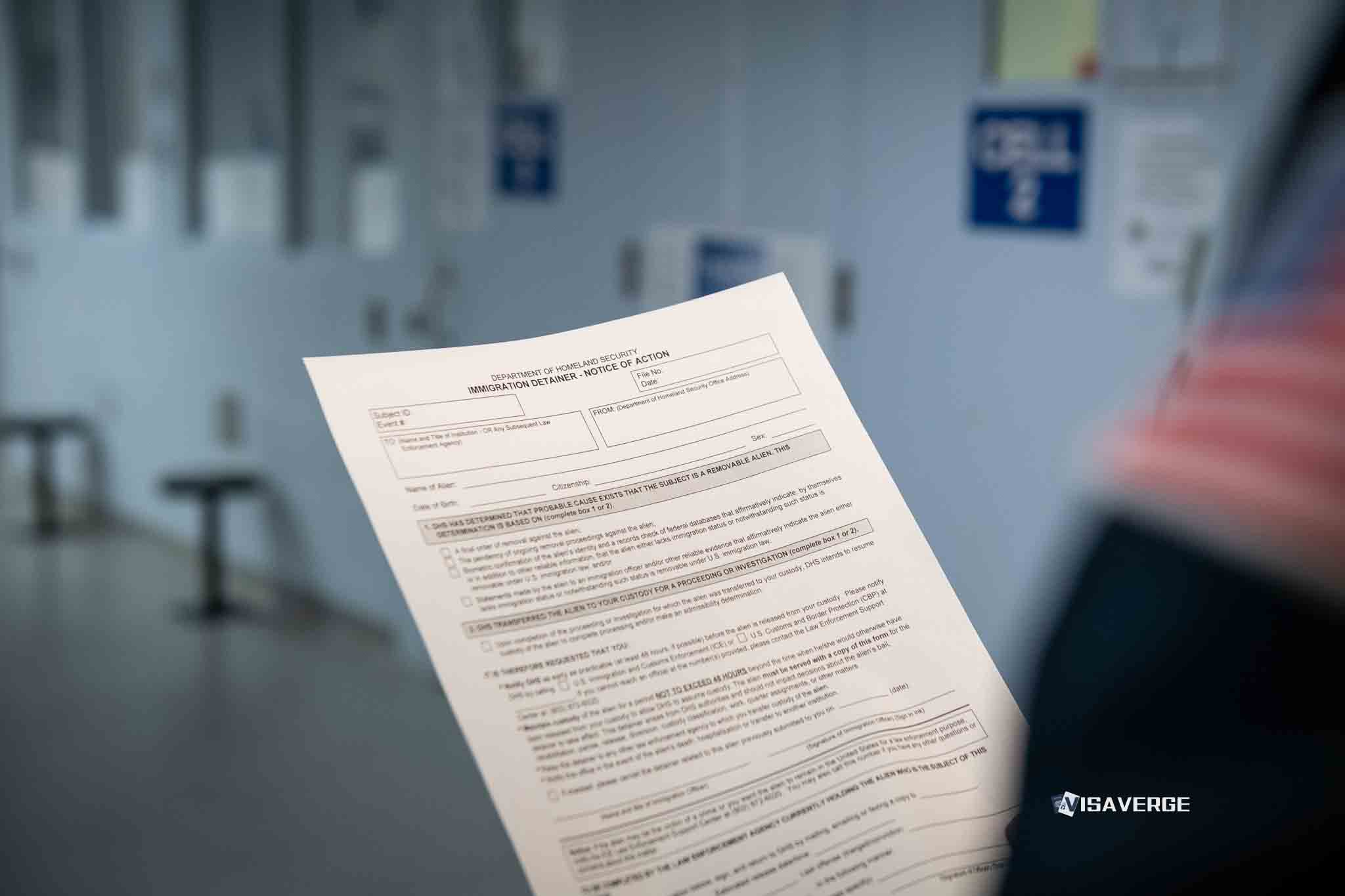Key Takeaways
• Oklahoma lawmakers rejected a rule requiring public schools to report students’ immigration status due to legal and ethical concerns.
• Plyler v. Doe Supreme Court precedent prohibits states from denying public education to children based on immigration status.
• Governor Kevin Stitt pledged to veto any measure mandating immigration status checks in schools if it reached his desk.
A recent decision by Oklahoma lawmakers has brought big attention to a proposed policy that would have required public schools across the state to check and report students’ immigration status. This proposal, advanced by State Superintendent Ryan Walters and backed by the Oklahoma State Board of Education, sparked concern from both Republicans and Democrats in the state legislature. Its rejection by key panels represents an important moment in the ongoing debates around immigration, education rights, and the limits of state power.
What Was the Proposed Rule?

In January 2025, Ryan Walters, who is the State Superintendent, put forward a plan approved by the Oklahoma State Board of Education. The main part of this rule was that families enrolling their children in Oklahoma’s public schools would need to show proof that those children are either U.S. citizens or legal residents. If a student’s family could not provide that proof, the school would have to record and report the number of students in that category.
Walters said the goal was to help the state figure out how many immigrant students were in public schools. He believed this would help Oklahoma better plan resources for schools. Walters also said he would work with federal authorities if they asked for that information.
However, the plan quickly met sharp questions. Many people wanted to know if this sort of rule was even allowed. Others wondered how it would affect families and schools day-to-day. Would schools have to turn away kids if their parents couldn’t produce documents? What would happen to the information once it was collected?
Let’s look at how lawmakers in Oklahoma responded.
Legislative Response: Strong Pushback from Both Parties
When the Oklahoma House Administrative Rules Committee examined the policy, it was clear that concerns cut across party lines. Both Republicans and Democrats raised strong objections.
Several key points came up:
- Authority and Legal Path: Some lawmakers doubted whether an agency, like the State Board of Education, could make this kind of rule without the full state legislature passing a law first. For example, Rep. Clay Staires (a Republican from Skiatook) said a law this broad should require the approval of the whole legislature.
-
Legal Risk and History: Rep. John Waldron, a Democrat from Tulsa, explained that doing something like this could risk a long, costly legal fight. He pointed to what happened in Alabama in 2011. Alabama passed a law requiring schools to check the immigration status of students. That law was later struck down by the courts. Waldron said Oklahoma could face similar lawsuits, which would cost the state a lot of money and time.
-
Impact on Schools and Families: The question of how this policy would affect local schools was also serious. Many lawmakers said public schools were already busy and did not have extra time or staff to track immigration paperwork. Some believed the rule would place an extra burden on teachers and principals, taking them away from their main job of helping students learn. There were also worries that immigrant families might be scared to send their children to school at all, out of fear their personal information might be shared or used against them.
As a result, after detailed discussion, the House Administrative Rules Committee—a group in the Oklahoma House of Representatives that reviews new rules from state agencies—recommended rejecting the policy.
Senate Panel Weighs In: Similar Outcome
Soon after, a panel in the Oklahoma Senate considered the policy as part of Senate Joint Resolution 22. Lawmakers in the Senate echoed many of the same concerns raised in the House. They passed a motion to reject the rule, again pointing out several important reasons:
- Constitutional Concerns: A big part of the debate focused on what the U.S. Supreme Court had ruled in the past. In a case called Plyler v. Doe, the Supreme Court found that states cannot deny children access to a public education because of their immigration status. This decision has shaped school policies across the United States 🇺🇸 for decades. By asking about or reporting students’ immigration status, lawmakers argued, Oklahoma’s rule could end up breaking this important federal rule.
-
Federal Law: Federal regulations say schools must not discourage children from enrolling or staying in public school because of their or their parents’ immigration status. The proposed Oklahoma policy could have crossed this line.
-
Governor’s Position: Adding to lawmakers’ worries, the Governor of Oklahoma, Kevin Stitt, said that he would block the rule if it ever reached his desk. This made it even less likely the rule would ever be put into place.
What Happens Next?
With both the House and Senate panels voting to reject the proposal, the process now moves forward with formal resolutions to stop the rule. For the measure to be fully blocked, both chambers—the full House and Senate—must vote to approve these resolutions. If both do, the issue will go to Governor Kevin Stitt, who, as mentioned, has already promised to step in if necessary.
If all goes as many lawmakers expect, the rule will be formally stopped and will not take effect.
Why Does This Matter?
The debate in Oklahoma over checking students’ immigration status is important for several reasons:
- Legal Precedent: The Supreme Court’s Plyler v. Doe decision makes it clear that states cannot stop children from going to public school based on their immigration status. Any rule or law in Oklahoma—or anywhere else in the United States 🇺🇸—that goes against this could be challenged in court and likely thrown out.
-
Schools’ Role: Public schools have long served all children in their communities, no matter where those children were born or what their immigration status might be. Forcing schools to act as immigration agents could change the relationship between educators and families, leading to fear or mistrust.
-
State vs. Federal Authority: This case shows how states can sometimes try to make their own rules about immigration. But because immigration is mostly handled at the federal level, there are strict rules states must follow. When states try to go beyond those limits, as the Oklahoma proposal tried to do, courts can step in.
-
Impact on Everyday Families: For many families in Oklahoma, especially those with mixed status (where some members are legal residents or citizens and others are not), the proposal was worrying. Many parents only want their children to get a good education. If schools started asking at enrollment about citizenship or residency, some families might not send their kids to school rather than risk possible trouble. If children stay home instead of going to school, it can hurt the children’s future as well as the wider community.
Background: The Alabama Example and Federal Law
The warnings from lawmakers about legal trouble did not come out of nowhere. In 2011, Alabama passed a law with a rule similar to the one Oklahoma just considered. That law was challenged, and in 2012, a federal court threw out the part requiring schools to check and report on students’ immigration status. The court ruled that Alabama’s law violated U.S. law and the Constitution.
Because of that history, many believe Oklahoma’s rule would have faced the same fate in the courts. The law would likely have been struck down, but only after the state spent a lot of time and money defending it in lawsuits.
As a general rule, current federal laws make it clear that schools cannot turn children away or even ask about their or their families’ citizenship or immigration status as a condition for enrolling. The U.S. Department of Education has clear guidance for schools on this matter. Schools should not collect, demand, or share information about students’ immigration situations unless strictly required by law. Schools must focus on teaching all children, not picking and choosing which children are allowed in classrooms based on where they were born.
You can find more about this issue and related federal guidance through the U.S. Department of Education’s official resource.
Ryan Walters’ Position—And the Arguments for the Rule
Ryan Walters, as State Superintendent, argued that collecting this information about students’ immigration status was important for Oklahoma to allocate resources. He suggested that knowing the number of immigrant students would help with school funding and planning.
Walters said he would cooperate with federal authorities if they ever asked for this information. However, critics say there is no law requiring schools to collect or report such information to federal immigration agents, unless there is a very specific court order, which is extremely rare.
Some supporters of the policy believed that without immigration data, the state cannot properly budget for education costs related to immigrant students. They thought the rule would allow Oklahoma to “know what it’s dealing with” in terms of students’ needs.
Yet, as analysis from VisaVerge.com suggests, the risks of such policies far outweigh the possible benefits for states. These kinds of rules can create legal battles, large costs, and community distrust. At the same time, they do not provide much helpful data that states like Oklahoma do not already have through other school enrollment statistics.
Voices in Opposition: Bipartisan Unity
One striking element in this story is that both Republicans and Democrats opposed the proposal. During the debates, lawmakers of both parties stood up to voice concern. They pointed out that this was not just a technical or budget matter—it was a question of the values behind public education and the rule of law.
- Democrats warned about lawsuits and the danger of hurting vulnerable families.
- Republicans questioned whether it was legal for an agency, not the legislature, to impose such a requirement and were concerned about the effect on schools.
Both agreed on one thing: any change this big needed a real law voted on by both chambers, not just a new rule from an agency or board. They also agreed that it should not break federal laws or Supreme Court decisions.
Governor’s Stance and What It Means
Governor Kevin Stitt has publicly committed to stopping the proposed rules if they come to his desk. This statement gives schools and families in Oklahoma a degree of certainty—the governor will step in to protect children’s right to attend public school regardless of their immigration status.
With both legislative panels and the governor against the plan, it appears very unlikely that this kind of policy will be tried again soon in Oklahoma.
Potential Effects on the Community
If these rules had passed, many worry that:
- Schools would face greater paperwork, reducing time spent on teaching.
- Some families would withdraw their kids or stop sending them to school out of fear.
- There might be mistrust between immigrant communities and school staff.
- Lawsuits would force the state to spend money that could go to classrooms instead.
Instead, with the rule rejected, Oklahoma’s public schools can stick to their main job—helping all children learn and grow.
Looking Ahead: What Should Schools Do Now?
School leaders in Oklahoma, and across the country, should follow federal rules and make sure enrollment is simple and open to all. Staff should never ask children or parents for immigration papers unless required. If they are unsure, they should refer to the federal guidance for schools.
Families worried about enrolling their children should know that by law, schools must accept children regardless of their immigration status. If you have questions about your rights as a student or parent, the Department of Education provides helpful resources you can trust.
Final Thoughts
Oklahoma’s debate over checking students’ immigration status reflects how hard it can be to make state policies that fit federal rules and protect children’s rights. Strong voices from across the political spectrum, plus a clear message from the governor, have kept public education open to all children in the state. Going forward, Oklahoma and other states can continue to focus on helping every child succeed, without asking immigration status at the school door.
Learn Today
Plyler v. Doe → A 1982 Supreme Court case ruling that children cannot be denied public education due to immigration status.
State Superintendent → The chief official overseeing public education within a state, setting policy and standards for all schools.
Senate Joint Resolution → A formal legislative action considered by both chambers, typically used to express decisions or block rules.
Mixed status family → A family with members holding different immigration statuses, such as legal residents and undocumented immigrants.
Administrative Rules Committee → A legislative group reviewing rules proposed by government agencies before they are enacted.
This Article in a Nutshell
Oklahoma’s legislature has blocked a controversial proposal requiring public schools to record and report students’ immigration status. The plan sparked bipartisan concerns over legality, education rights, and state authority. Federal law and Supreme Court decisions protect all children’s access to public education, regardless of their or their families’ immigration status.
— By VisaVerge.com
Read more:
• Visa Bans Target Indian Travel Executives Linked to Illegal Immigration
• Nathan Hochman targets immigration enforcement in Los Angeles County shift
• Horse racing in the US faces labor fears over illegal immigration rules
• Indian students hit hardest by US visa revocations, immigration lawyers say
• Delaware Immigration Enforcement Soars Under Trump













